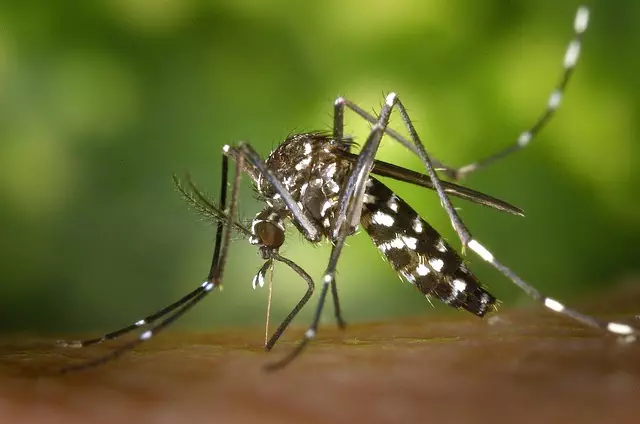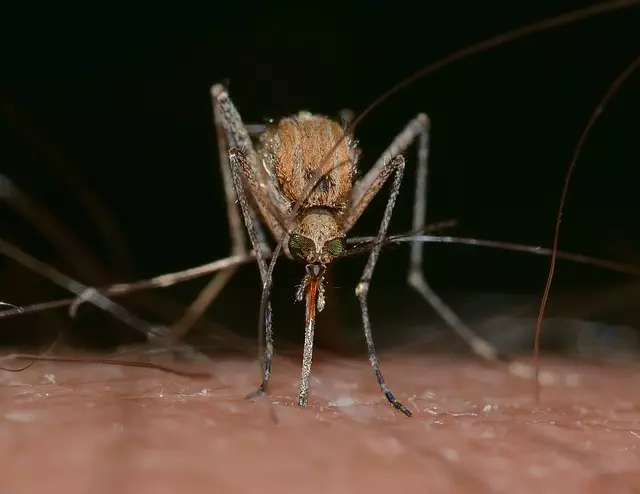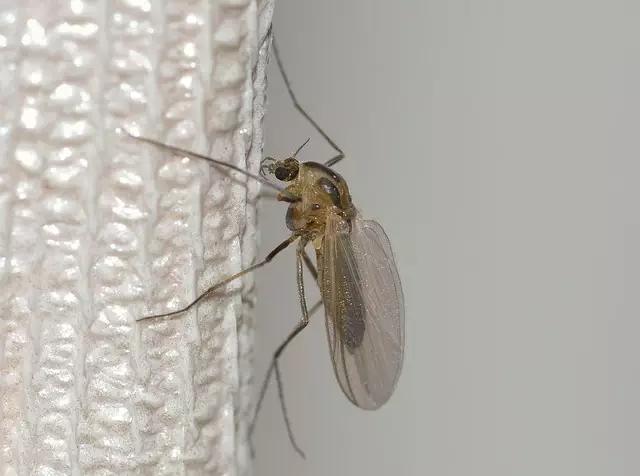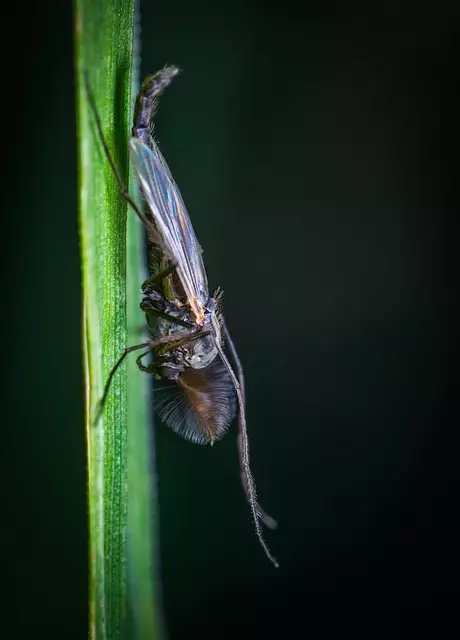Mosquitoes pose significant health risks as disease vectors, but traditional chemical-based control methods harm ecosystems and foster resistance. A growing trend favors eco-friendly Mosquito Control focusing on natural solutions like essential oils, beneficial insects, habitat management, and community education. These approaches balance public health protection with environmental preservation. Future innovations in genetic engineering, surveillance technologies, and AI predictions promise sustainable and strategic mosquito management.
Mosquitoes, while an integral part of our ecosystem, pose significant health risks, transmitting diseases like malaria and dengue. Traditional mosquito control methods relying on chemicals have environmental and health drawbacks. This article explores eco-friendly alternatives, from natural repellents and predators to habitat management and community education. We also delve into innovative technologies poised to revolutionize sustainable mosquito management, offering a comprehensive guide for effective, environmentally conscious mosquito control.
Understanding the Impact of Mosquitoes on Environment and Health

Mosquitoes, though often considered mere pests, have significant environmental and health impacts. They are vectors for various diseases, transmitting pathogens that cause maladies such as malaria, dengue fever, Zika virus, and West Nile virus. These diseases pose substantial threats to global health, particularly in regions with limited access to healthcare. Beyond their role in disease transmission, mosquitoes also disrupt ecosystems by feeding on diverse species, from birds and bats to fish and amphibians.
The environmental consequences of traditional mosquito control methods, which often involve chemical pesticides, are equally concerning. These chemicals can contaminate water bodies, harm beneficial insects, and contribute to the development of pesticide resistance in mosquito populations. In response to these challenges, there is a growing emphasis on eco-friendly mosquito control methods that prioritize sustainability and minimize negative impacts on both human health and the environment. This shift towards more holistic approaches underscores the need for innovative solutions in mosquito management.
Traditional Mosquito Control Methods: Chemicals and Their Drawbacks

Traditional mosquito control often relies on chemical-based solutions, such as insecticides and repellents, which can have significant drawbacks for both human health and the environment. These chemicals, while effective in reducing mosquito populations, pose risks to people, pets, and wildlife when misused or applied improperly. Many common insecticides contain toxic substances that can contaminate water sources, harm beneficial insects like bees and butterflies, and persist in the environment, leading to long-term ecological imbalances.
Additionally, the increasing resistance of mosquito populations to these chemicals further complicates their effectiveness over time. This has led many communities and homeowners to seek eco-friendly alternatives for mosquito control that balance the need for pest management with the preservation of a healthy ecosystem. By adopting more sustainable practices, we can achieve effective mosquito control while minimizing potential harms associated with traditional chemical-based methods.
Exploring Eco-Friendly Alternatives: Natural Repellents and Predators

In the quest for effective yet eco-friendly mosquito control, exploring natural alternatives is a game-changer. Traditional methods often rely on chemicals that can be harmful to both the environment and non-target species. Therefore, turning to natural repellents and predators offers a safer, more sustainable approach. Essential oils like citronella, lavender, and peppermint have been shown to deter mosquitoes naturally. These plant-based compounds not only provide an effective barrier against these pests but also contribute to a healthier ecosystem.
Introducing beneficial insects, such as dragonflies and lacewings, into your surroundings is another powerful strategy. These predators feed on mosquitoes and their larvae, helping to keep their populations in check. By fostering an environment that encourages these natural enemies, you’re promoting a balanced ecosystem where mosquitoes are kept at bay without resorting to toxic chemicals. This eco-friendly approach not only benefits the environment but also ensures safer outdoor experiences for people and pets.
Role of Habitat Management in Reducing Mosquito Populations

Habitat management plays a significant role in eco-friendly mosquito control strategies. By manipulating the environment where mosquitoes breed and thrive, it’s possible to reduce their overall population. This involves eliminating or treating standing water bodies, as mosquitoes lay their eggs in stagnant water. Regularly emptying containers such as flower pots, buckets, and old tires can significantly hinder mosquito breeding grounds. Additionally, maintaining lush greenery and proper drainage systems can disrupt the mosquito life cycle, making your environment less hospitable to these pests.
Beyond physical changes, habitat management includes introducing natural predators and parasites that target mosquitoes. Birds, bats, and certain fish species are known to feed on mosquitoes, helping to keep their numbers in check. Encouraging these beneficial creatures in your surroundings can be a sustainable and eco-conscious way to manage mosquito control, fostering a harmonious balance within the local ecosystem.
Community Involvement and Education for Effective Mosquito Control

Community involvement is a vital aspect of effective mosquito control strategies. Educating residents about the life cycle and habits of mosquitoes empowers them to take proactive measures. By fostering a collective understanding of the issue, communities can develop tailored solutions. For instance, encouraging citizens to remove standing water sources from their properties, as mosquitoes breed in stagnant water, can significantly reduce breeding grounds. Community-led initiatives also promote the responsible use of eco-friendly repellents and mosquito traps, ensuring a healthier balance between human comfort and environmental preservation.
Involving local schools and community centers in educational programs can further enhance awareness. Workshops and informational campaigns can teach people about natural predators of mosquitoes, such as birds and fish, and encourage the creation of habitats that support them. This holistic approach to mosquito control not only reduces the reliance on chemical treatments but also fosters a sense of collective responsibility for public health and environmental sustainability.
Future Prospects: Innovative Technologies for Sustainable Mosquito Management

The future of mosquito control looks promising with a wave of innovative technologies poised to revolutionize sustainable pest management. From genetic engineering and advanced surveillance systems to AI-driven predictions, these cutting-edge solutions offer more effective and environmentally friendly alternatives to traditional methods. For instance, genetic modification can be used to develop sterile male mosquitoes that compete for mates with their wild counterparts, ultimately reducing the population.
Additionally, remote sensing technologies and machine learning algorithms enable precise monitoring of mosquito breeding grounds and predict high-risk areas, allowing for targeted interventions. These tools can help in implementing more strategic and efficient mosquito control programs, ensuring a better quality of life without resorting to harmful chemicals. As research progresses, we can expect even more eco-friendly solutions to emerge, shaping a greener and healthier future for all.
